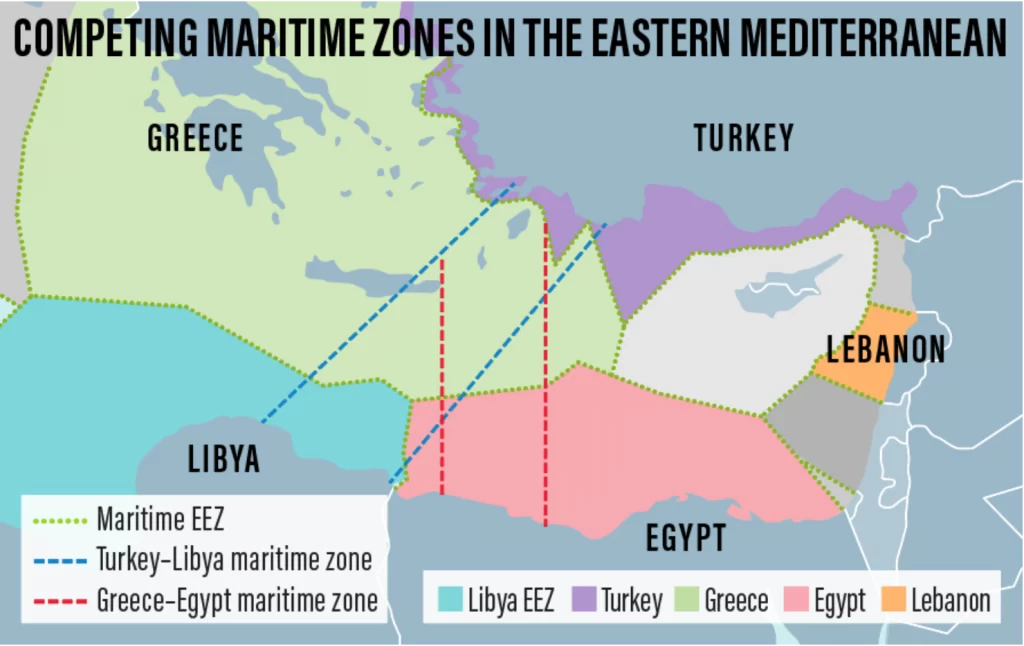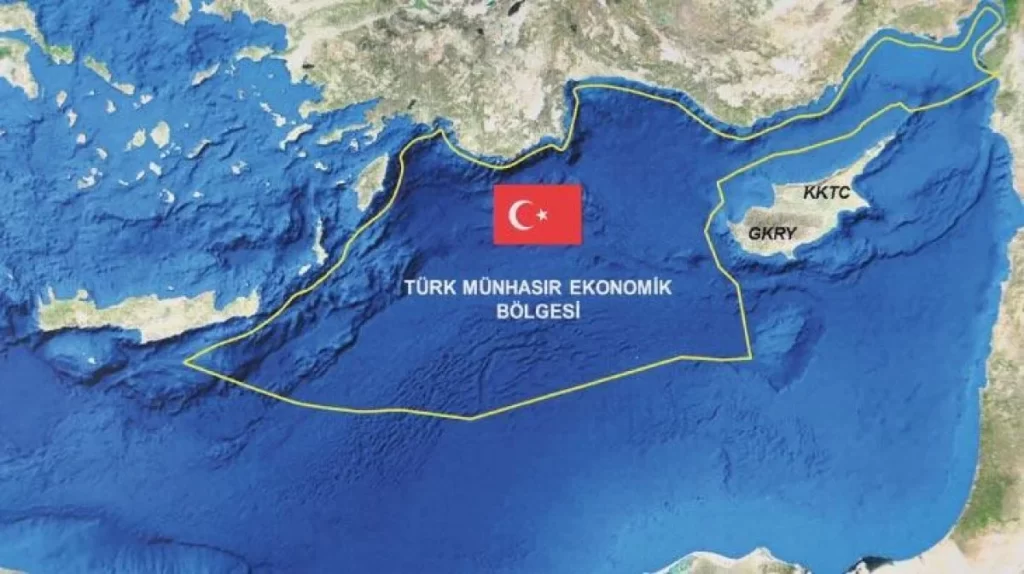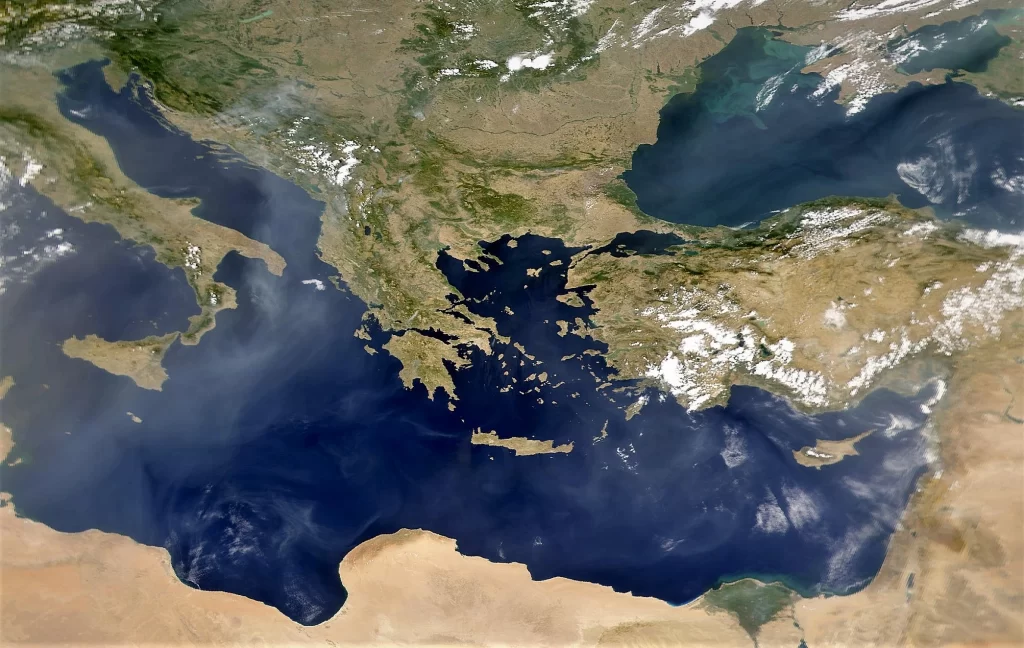The Eastern Mediterranean has emerged as a crucial arena for energy exploration and geopolitical competition, with Turkey positioned as a key player. Rich gas reserves discovered in the region have fueled ambitions and tensions, drawing in multiple countries with competing interests. For Turkey, this is more than an energy issue; it’s a matter of national security, sovereignty, and regional influence. But how is Turkey navigating the complex dynamics of energy exploration and political alliances in this contested region?
The Eastern Mediterranean Energy Landscape
In recent years, extensive gas reserves have been discovered in the Eastern Mediterranean, particularly in waters near Cyprus, Israel, Egypt, and Lebanon. These findings have transformed the region into an energy hotspot with strategic importance on a global scale. The newfound resources could supply energy to Europe, reducing its dependence on Russian gas and altering the global energy map. However, the discovery has also intensified existing territorial disputes and created new friction points among regional players.

Turkey’s Strategic Goals
Turkey’s approach to the Eastern Mediterranean energy race is shaped by its broader national interests and strategic priorities. One primary objective is securing energy independence. As a country reliant on energy imports, Turkey sees these reserves as an opportunity to reduce its energy vulnerability and establish itself as a regional energy hub. Additionally, Turkey aims to safeguard its sovereignty in the Eastern Mediterranean, where it has rights based on its continental shelf and international maritime law.
Diplomatic Moves and Alliances
To assert its position, Turkey has taken several diplomatic steps, often challenging the alliances of other regional actors. For example, it signed an agreement with Libya in 2019 to define maritime boundaries, countering the Greece-Cyprus-Egypt-Israel bloc. This move was significant as it established a direct connection between Turkey and Libya’s Exclusive Economic Zones (EEZ), effectively contesting other countries’ claims and altering the region’s geopolitical landscape.
While Turkey’s assertive stance has drawn criticism from some Western allies, it has also opened avenues for dialogue. Turkey has called for equitable sharing of resources, advocating for multilateral negotiations to address the overlapping claims. Despite the tensions, Turkey remains open to cooperating with neighboring countries, provided that its sovereignty and rights are respected.

Technological Investments in Energy Exploration
Turkey has made considerable investments in offshore drilling and seismic research vessels, such as the Fatih, Yavuz, and Kanuni, which allow it to independently conduct exploration activities. These advancements have strengthened Turkey’s hand in the energy race, enabling it to explore contested areas without relying on foreign partners. By developing its technological capacity, Turkey signals its commitment to securing its share of the Eastern Mediterranean’s resources.
Related Keyphrase: The Blue Homeland Doctrine: Turkey’s Naval Strategy
The Role of International Law and the United Nations
International law and the United Nations play critical roles in disputes over maritime boundaries and energy rights. Turkey has consistently argued that its rights in the region are grounded in international legal principles, particularly regarding the continental shelf. However, the absence of a universally accepted mechanism for resolving EEZ disputes complicates matters. Turkey has emphasized its willingness to engage in dialogue through the United Nations framework, but it insists that any solution must respect its legitimate rights.
The Broader Geopolitical Implications
The Eastern Mediterranean energy race is not just a regional issue but a strategic matter with global implications. Control over these energy resources could shape alliances and alter energy supply routes to Europe, impacting the broader international community. For Turkey, its involvement in the Eastern Mediterranean is part of a larger vision for becoming an influential player in regional politics. By asserting its rights in this energy-rich zone, Turkey seeks to establish itself as a power broker and an indispensable partner in regional stability.

Turkey’s Path Forward: Balancing Strength with Diplomacy
Turkey faces a complex path forward as it seeks to balance its assertive stance with diplomatic efforts to resolve disputes. Moving forward, Turkey’s strategy is likely to involve a combination of continued exploration efforts and calls for inclusive regional dialogue. By maintaining a strong presence in the region while remaining open to negotiations, Turkey positions itself as both a formidable and cooperative player.
Turkey’s approach in the Eastern Mediterranean represents its broader ambitions in foreign policy—advancing its interests through a mix of strength, strategic alliances, and diplomatic overtures. How the situation unfolds will be pivotal not only for Turkey but for the future of energy security and geopolitical alignment in the region.
Related Keyphrase: Turkey’s Eastern Mediterranean Strategy















